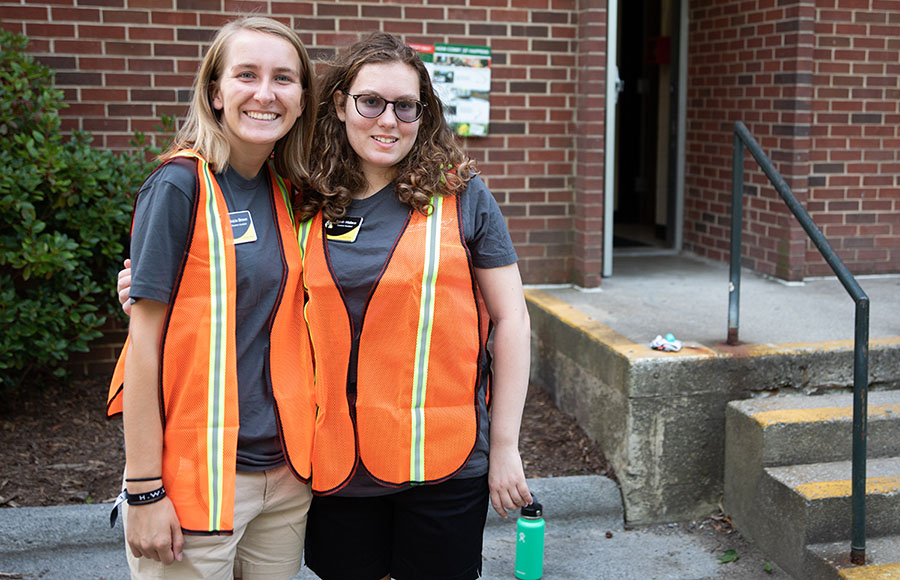
During move-in for fall 2021, resident assistants Gracie Brown, left, and Sarah Wallace are on-site at Appalachian State University’s Eggers Hall, ready to welcome incoming students. Brown, a sophomore from Wake Forest majoring in communication studies, said she served as a camp counselor for several years, and looks forward to applying her “people skills” to her position as an RA. Wallace, a sophomore from Raleigh, is majoring in social work with a minor in Spanish. Photo by Chase Reynolds
BOONE, N.C. — For many Appalachian State University students, living in an on-campus residence hall provides the chance to more easily engage with their peers and with university amenities and resources, according to Dr. Brandon Nelson, App State’s director of business operations for student affairs.
University Housing resident assistants (RA) lead the charge in helping foster these connections for thousands of students who live on campus each year. In 2021–22, approximately 6,200 students will reside in App State’s residence halls.
Each RA serves as a mentor and guide for 30–60 students on a floor or a living area within a residence hall. Their charge: to create a safe, welcoming environment for their residents and to cultivate opportunities for students to take advantage of all App State has to offer.
“Our RAs show an extremely high level of care and concern for their peers,” Nelson said. “They are actively engaged in making University Housing and App State a better place for future students, and they are committed to diversity, equity and inclusion.”
Connecting with residents
Erin O’Neill, a senior from Noblesville, Indiana, who has been an RA since her sophomore year, said RAs provide a support system for students from the very first day they move into their residence halls.
“RAs are extremely knowledgeable about campus resources and we are always happy to help residents get connected with them. We’ve been in their shoes and we are excited to help them in their journey at App State,” said O’Neill, who is double majoring in communication, journalism and communication, public relations, with a minor in leadership studies.
As an out-of-state student, O’Neill said University Housing staff helped her feel at home and discover her place on campus.
Junior Jon’Nae Williams, an exercise science major from Concord who is an RA in Summit Hall this fall, echoed similar feelings: “I wasn’t able to go home as much as I would have liked (my first year). Having my RA there to support me, show me around campus and make sure that my first year was enjoyable was something that I will never forget,” Williams said.
RAs engage with their residents in a variety of ways:
- Being available. An RA is on duty from 5 p.m. to 8 a.m. daily in their residence hall and helps residents with anything from being locked out of their room to dealing with interpersonal conflicts, crises or safety concerns.
- Initiating App Chats. RAs schedule one-on-one conversations with each resident twice a semester. O’Neill said these sessions “help us get to know our residents, see how things are going and get them connected with any resources they might need.”
- Hosting programs and events. RAs often partner with offices across campus for educational presentations and interactive events. O’Neill said RAs work hard to develop fun ways for residents to build meaningful relationships with one another and learn more about the university. She said her most successful program was a bracelet-making event, in which participants used multiple colors of beads, each representing a different emotion, feeling or goal. She then connected residents with on-campus resources and offices based on the beads they chose for their bracelet.
- Sharing opportunities for engagement. Williams said her residents often ask her for recommendations of things to do on campus and in the local community, so she seeks out events and activities she can share with the students in her hall.
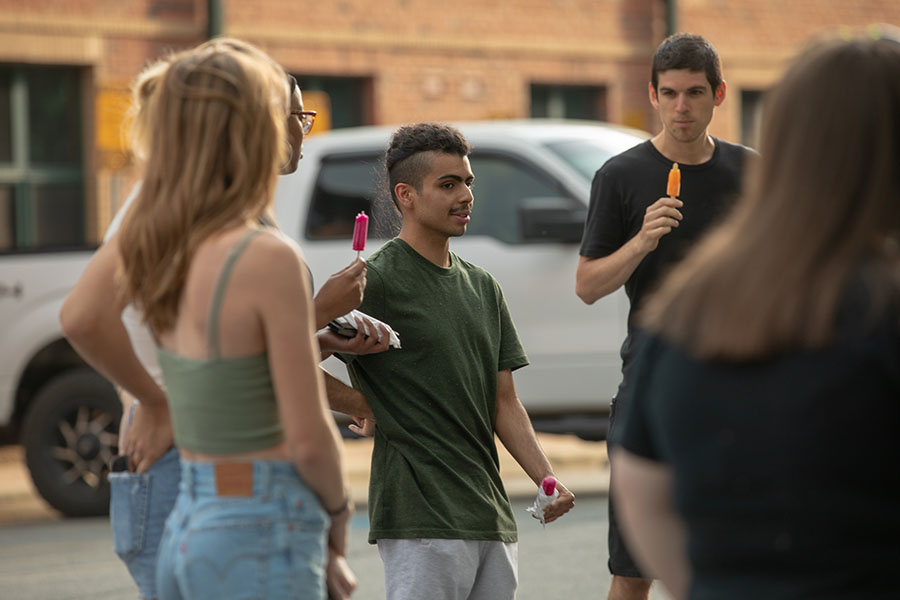
Appalachian State University resident assistants routinely host events and programming to help students engage with fellow residents and learn about university resources. Pictured, App State students get to know one another during a welcome event for residents who lived on campus in summer 2021. Photo by Marie Freeman
Honing professional skills
The university employs more than 150 RAs each year. According to Nelson, one of the benefits of the RA program is students gain transferable skills and training that can help them in their future careers, including:
- Time management.
- Crisis management.
- Communicating with diverse populations.
- Developing events and programming.
New and returning RAs annually complete an intensive 11-day training, in coordination with offices, departments and programs across campus, to ensure they are well versed in safety protocols and campus resources and are prepared to mediate any conflicts or issues that arise within their residence halls. RAs are also required to complete professional development throughout the year.
Dr. Susan McCracken, director of career development and economic engagement in App State’s Career Development Center, said RAs have to “develop a unique set of skills ranging from program development, to mediation, to crisis management.”
“Few campus jobs require student employees to hone such a diverse set of career readiness skills — communication, leadership, critical thinking, intercultural fluency. The mentoring and training students gain as an RA is invaluable for students’ professional and personal development,” McCracken said.
According to Williams, who was an RA in the newly opened Raven Rocks Hall last year, her time as an RA has been helpful in improving “my people skills and also developing my creativity and problem-solving skills. I need all of these for this job and any job that I get in the future.”
“Being an RA gives me purpose as a student leader and helps me stay motivated and engaged in campus life,” O’Neill said.
What do you think?
Share your feedback on this story.
About Student Affairs at App State
Student Affairs at App State supports student success and well-being by fostering a culture of care, inclusion and engagement. Its mission is to develop lifelong learners and dynamic leaders through meaningful experiences that challenge and support students. Grounded in a commitment to care, engage and transform, Student Affairs creates a student-centered environment that encourages resilience, leadership, service and global learning. Student Affairs encompasses the following units: Campus Activities, Case Management, the Child Development Center, Community-Engaged Leadership, Counseling and Psychological Services, Office of the Dean of Students, New Mountaineer and Family Engagement, Off-Campus Student Services, Plemmons Student Union, Student Conduct, M.S. Shook Student Health Service, Student Legal Services, Student Veteran Services, University Recreation, and Wellness and Prevention Services. Learn more at https://studentaffairs.appstate.edu.
About Appalachian State University
As a premier public institution, Appalachian State University prepares students to lead purposeful lives. App State is one of 17 campuses in the University of North Carolina System, with a national reputation for innovative teaching and opening access to a high-quality, cost-effective education. The university enrolls more than 21,000 students, has a low student-to-faculty ratio and offers more than 150 undergraduate and 80 graduate majors at its Boone and Hickory campuses and through App State Online. Learn more at https://www.appstate.edu.
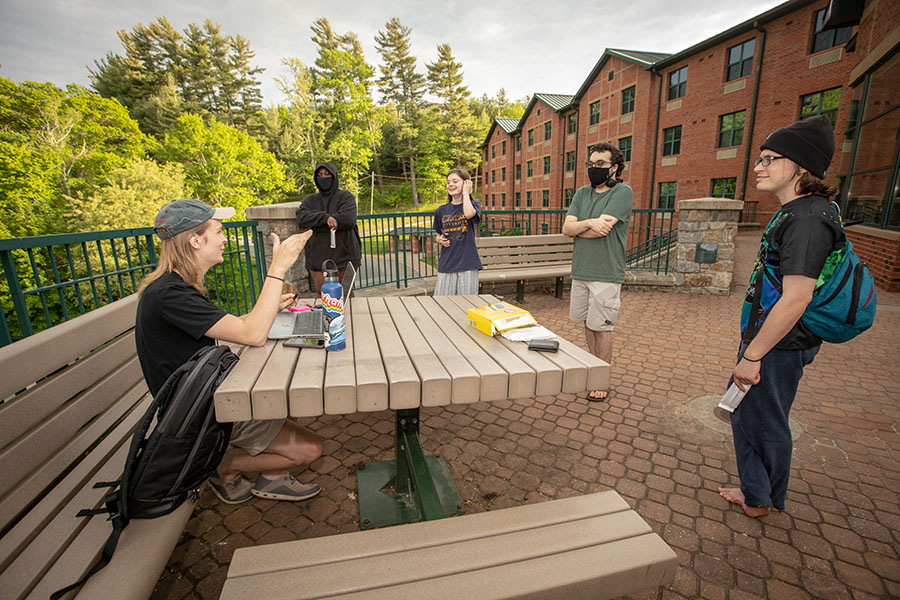

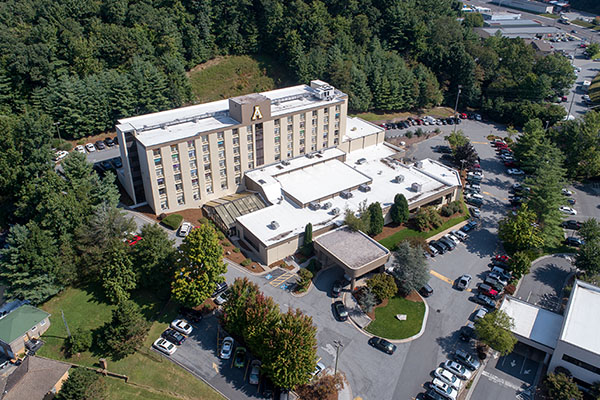
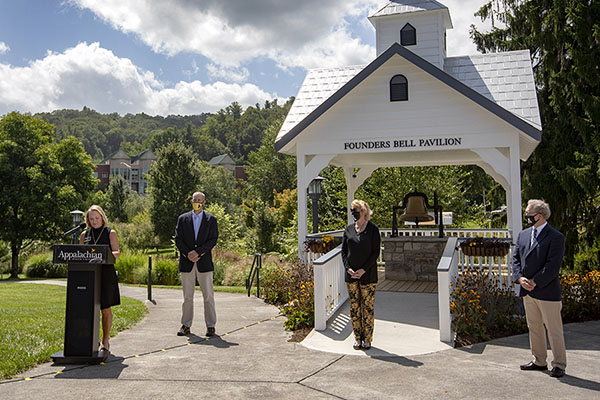


![How NCInnovation Is Rethinking Economic Development in North Carolina [faculty featured]](/_images/_posts/2026/02/rethinking-economic-development-600x400.jpg)








